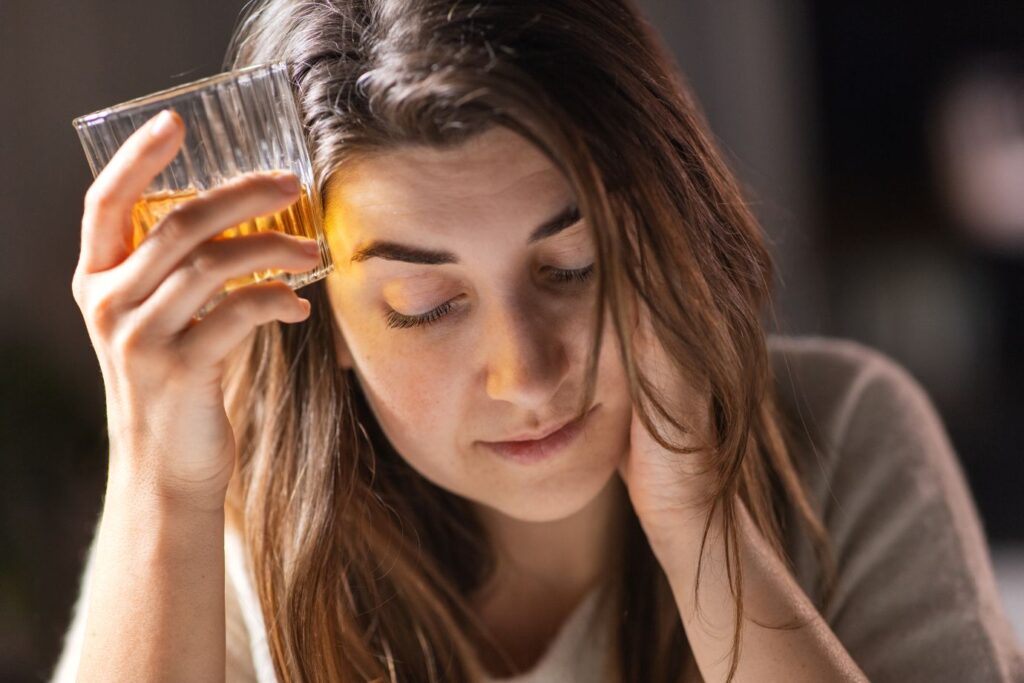Diane Denton never really grew out of the party girl phase. She loved a drink and admits she was, “still having benders at 40.”
It’s a story I hear a lot from women who are struggling to change their relationship with alcohol.
Unlike Di, who quit drinking before things spiralled, and is now living her best sober life, countless others are not so lucky.
The number of Australian women dying from alcohol-related health conditions is at its highest rate in a decade. The number of young women drinking at risky levels is also rising.
It’s time for a national conversation about the way women are drinking, and the support they need to make positive changes.
For many, it can be challenging to quit when alcohol companies aggressively and relentlessly target women, selling drinking as a tool of female empowerment and independence.
Alcohol is also positioned as a reward for the disproportionate mental and domestic load women shoulder.
This glorification of ‘mummy wine culture’ may line the pockets of alcohol companies, but it is killing women.
Women are more likely to experience serious health complications from excessive drinking, including liver problems, cardiovascular disease, several types of cancer, and mental health issues, and it can exacerbate the impacts of menopause.
For Di, she was already intimately aware of the health consequences: her father was a dependent drinker and tragically, she also lost her sister to alcohol. Drinking was also her way of self-medicating to block out childhood trauma.
But as the years progressed, it became more apparent it was having the opposite effect. Her mornings after were no longer defined by memories of a great night out, but by crippling anxiety and debilitating depressive episodes.
Di’s experiences are common. But one of the biggest problems for women in her situation is the barriers to treatment and support when they are ready to make a change.
Alcohol problems don’t discriminate, but women are less likely to access treatment and support services, which are often designed in ways more suited to men.
Twelve step models like Alcoholics Anonymous – where participants are asked to surrender their power to a higher source – can be daunting for women who already feel they have little power.
The public disclosure nature of these groups can also be a barrier when we know that women are less likely to reach out for help because they face greater stigma.
They often view their drinking either as a shameful secret or not serious enough to require support. Mothers might worry that if they ask for help, they’ll struggle to find childcare or even lose custody of their children.
It’s also worth noting that around 80 per cent of women who seek treatment have a history of sexual and physical assault and many experience PTSD. They may not feel safe in a medical waiting room or rehab facility with men.
We need support options specifically designed for women, that recognise the unique challenges they face and provide more nuanced care.
Unfortunately, there are only ten female-only public treatment services in the whole of Australia, which is woefully inadequate for the scale of demand.
For Di, it took a few false starts but eventually she found the support she needed in Hello Sunday Morning’s Daybreak community, and has quit drinking altogether.
Having a judgement-free, digital space to share her experiences and know she was heard and understood was powerful. It also helped her focus on what she was gaining by removing alcohol, rather than on what she was giving up.
Her anxiety has gone. Life challenges that would have once flattened her, she can now face head-on. The space that alcohol left in her life is now filled with positive experiences.
Rather than spending Sunday mornings bed-ridden and in tears, she’s going on hikes and grabbing life with both hands.
Di now helps others, volunteering to share her lived experience and her knowledge of the challenges women can face when trying to reshape the role of alcohol in their lives.
Her experience is a testament to the power of community and support in overcoming problematic drinking.
But for every Diane, there are countless others who suffer in silence, without access to the care and resources they need.
It’s vital that we create a treatment system that addresses the urgency of the situation, empowers women, and creates safe spaces to access support early. Lives depend on it.


